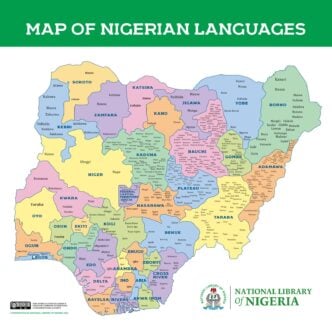BY STEPHEN ONU
Artificial Intelligence (AI) is increasingly regarded as a pillar of national power, comparable to defence, energy, or monetary policy. According to the Brookings Institution (2023), nations that integrate AI into their governance and economic strategies are outpacing their peers in innovation and resilience. AI now underpins not just business efficiency, but also geopolitics, national security, and social stability.
For Nigeria, the stakes are unusually high. With a population exceeding 220 million—60% under the age of 25—the nation holds Africa’s largest concentration of digital natives.
Yet Nigeria risks being sidelined, reduced to a market for foreign platforms if it does not invest in building its own AI capacities. We already see early warning signs: imported fintech solutions dominating payments, foreign-built chatbots serving local banks, and international data centres hosting Nigerian information. This dependency exposes Nigeria to digital colonialism—a future where critical services and data governance lie outside national control.
AI adoption must therefore be elevated beyond technical policy to a national strategic imperative, one woven into the heart of Nigeria’s development and sovereignty agenda.
The Economic Stakes Are Trillions—Literally
Advertisement
AI is projected to be the single most significant driver of economic growth in the coming decade. Unlike previous waves of technological change, AI’s impact is not confined to one sector, such as ICT or manufacturing—it cuts horizontally across all domains of economic activity.
Independent projections converge on staggering figures:
– PwC (2019) forecasts that AI could contribute $15.7 trillion to global GDP by 2030. This exceeds the combined current output of China and India, positioning AI as a transformative force in the global economy.
Advertisement
– McKinsey (2023) estimates that generative AI alone—just one subset of AI technologies—could add $2.6–$4.4 trillion annually across 63 use cases, from customer service automation to drug discovery.
– Goldman Sachs (2023) suggests AI could drive 7% global GDP growth over the next 10 years, while simultaneously automating up to 300 million jobs worldwide.
These numbers are not speculative—they reflect measurable productivity shifts already happening. For instance, U.S. law firms using generative AI have cut contract review times by 60%, and global logistics firms are using AI to save billions annually in route optimisation.
Implications for Nigeria
Advertisement
For Nigeria, these figures intersect directly with its economic diversification agenda:
Agriculture: With agriculture employing about 35% of Nigerians, AI-powered solutions like precision farming, predictive weather modeling, and supply chain optimization could boost yields by 20–30%, cut post-harvest losses, and stabilize food security.
Healthcare: Nigeria’s doctor-patient ratio is currently 1:5,000 compared to the WHO recommendation of 1:600. AI diagnostic tools, triage chatbots, and telemedicine can bridge this gap, improving access and outcomes while reducing pressure on overstretched systems.
Public Revenue: The Federal Inland Revenue Service (FIRS) estimates annual losses of over $26 billion due to tax evasion and mis-collection. AI-powered compliance analytics could significantly reduce these leakages, enhance transparency, and expand the tax base.
Advertisement
Financial Services: AI can expand financial inclusion through credit scoring based on mobile and transactional data, automate Know Your Customer (KYC) and Anti-Money Laundering (AML) processes, and strengthen fraud detection in Nigeria’s fast-growing fintech ecosystem.
Strategic Takeaway
Advertisement
AI is not a gadget or luxury—it is a productivity platform. The nations that invest early and scale rapidly experience exponential, compounding growth. Those that lag are left behind, facing structural disadvantages in trade, foreign investment, and workforce competitiveness.
Case Study 1: Singapore — From Strategy to Systems
Advertisement
Singapore has consistently ranked among the most forward-looking digital economies, and its AI strategy is a blueprint for how smaller nations can punch far above their weight. In 2019, the country launched its first National AI Strategy, laying the foundation for AI adoption across government and industry. But the real leap came in December 2023, when Singapore unveiled National AI Strategy 2.0 (NAIS 2.0) — a whole-of-nation plan with concrete milestones, funding commitments, and governance structures.
Key Features of Singapore’s Plan
Advertisement
AI as Critical Infrastructure: Singapore treats AI not as a side project but as infrastructure on par with roads, power, and broadband.
NAIS 2.0 includes a National Compute Strategy, expanding access to sovereign high-performance computing and cloud services, ensuring AI development isn’t bottlenecked by reliance on foreign providers.
Talent Development at Scale: NAIS 2.0 invests heavily in human capital. It expands scholarships, vocational AI programs, and mid-career re-skilling to ensure every level of society can participate.
By 2030, Singapore plans to train 15,000 specialists in AI and data science, while also embedding AI literacy into school curricula.
Public Sector AI Adoption: Government agencies are mandated to deploy AI in core service areas. Examples include:
- Predictive analytics in healthcare to optimise patient flow and resource allocation.
- AI-enabled traffic management to reduce congestion.
- Automated systems in social services for fraud detection and case management.
This creates anchor demand, stimulating the private sector.
AI Governance and Trust: Singapore’s AI Verify framework is one of the world’s first testing and certification systems for responsible AI. It ensures systems are transparent, explainable, and fair, giving global companies confidence to pilot AI projects there.
Governance is built into the strategy, with a focus on ethics, safety, and alignment with international standards.
Startup and Innovation Ecosystem: Dedicated funds and accelerators support AI startups.
The government acts as a catalyst investor, de-risking early-stage ventures and enabling partnerships among universities, corporations, and government labs.
Why It Works
Singapore’s strategy is effective because it is funded, measurable, and consistently enforced across the government. Every ministry has AI mandates tied to KPIs, and progress is tracked at the national level. This creates both top-down accountability and bottom-up innovation.
Lessons for Nigeria
Treat AI as Infrastructure: Just as Singapore views compute and cloud as critical infrastructure, Nigeria must allocate explicit budget lines for sovereign data centers, AI labs, and high-performance computing. Without this, local startups and ministries will remain dependent on foreign providers.
Establish Delivery Units: Nigeria should create AI delivery units within priority ministries (Finance, Health, Agriculture, Education). These teams should be empowered to launch pilots within 12–18 months and report directly to a central AI governance board.
Adopt Certification Standards: Nigeria’s NDPA 2023 is a strong start, but it must go further. By adopting certification frameworks similar to AI Verify, Nigeria could become the regional leader in AI trust, making it a destination for ethical AI testing and deployment across Africa.
Anchor Public Demand: Just as Singapore mandated AI in public services, Nigeria should use its massive public sector as the anchor client for AI solutions — from tax administration to border security — creating demand that stimulates the private sector.
Case Study 2: UAE — Making AI a Pillar of National Vision
Few nations have moved as boldly and symbolically on AI as the United Arab Emirates (UAE). In 2017, the UAE became the first country in the world to appoint a Minister of State for Artificial Intelligence, signaling that AI was not merely a technology issue but a matter of governance, sovereignty, and long-term competitiveness. This decision was followed by the launch of the UAE National AI Strategy 2031, a blueprint that integrates AI across all pillars of the national economy and society.
Key Features of the UAE AI Strategy
Institutional Leadership: The creation of a Minister of AI provided both symbolic and operational leadership. It ensured AI received cabinet-level visibility and cross-ministry alignment, avoiding the silo problem common in many countries.
This office is tasked with embedding AI into the UAE’s long-term national vision — “Centennial 2071” — which aims to make the UAE one of the world’s most advanced economies.
Sectoral Integration
The strategy mandates the deployment of AI in nine priority sectors, including:
Transport: AI-powered traffic flow management and innovative mobility solutions.
Healthcare: Predictive diagnostics, robotic surgeries, and telemedicine.
Education: AI-driven personalised learning systems and coding from early stages.
Space: AI-supported satellite imaging and planetary exploration projects.
Renewable Energy & Environment: Smart grids and AI monitoring of environmental indicators.
Workforce Transformation
The UAE has rolled out programs to prepare a future-ready workforce. For example:
AI modules are being embedded into school curricula.
A UAE AI Camp and AI University (Mohammed bin Zayed University of Artificial Intelligence — MBZUAI) were established to train thousands of engineers, scientists, and policymakers in AI.
The university attracts global students and positions the UAE as a knowledge exporter, not just a consumer of talent.
FDI and Innovation Magnet
By creating a safe, well-regulated, and innovative-friendly environment, the UAE has positioned itself as a magnet for foreign direct investment (FDI) in AI.
Global tech giants — including Google, Microsoft, Huawei, and IBM — have set up AI R&D hubs in the UAE.
The country actively funds AI startups, with sovereign wealth funds like Mubadala investing heavily in frontier technologies.
Governance and Trust
Ethical AI principles are embedded in the strategy. The UAE has established frameworks for the responsible use of AI, ensuring its deployment respects human rights and global standards.
This helps build international credibility, enabling partnerships with leading nations and companies.
Lessons for Nigeria
∙ Appoint a Special Adviser or Minister of AI: Nigeria should elevate AI leadership to the cabinet level. A Minister of AI and Digital Economy, or a Presidential Adviser on AI, would give the issue political visibility and authority across ministries.
∙ Embed AI KPIs in All Federal Ministries: Like the UAE, Nigeria should make AI adoption a cross-ministerial priority. Ministries of Health, Finance, Education, Agriculture, and Security should each have measurable AI targets in their performance scorecards. For example, the Ministry of Health could be tasked with deploying AI diagnostic tools in at least 50 tertiary hospitals within 3 years.
∙ Use AI to Attract FDI: Nigeria can position itself as Africa’s AI hub by creating special economic zones for AI research, providing tax incentives for AI startups, and leveraging public-private partnerships. With its large youth population and market size, Nigeria has a unique advantage to attract global players — but only if the investment climate is innovation-friendly and regulatory frameworks are clear.
∙ Anchor in National Vision: Just as the UAE tied AI to Centennial 2071, Nigeria should integrate AI into Vision 2050 and its development plans, making AI central to job creation, industrial growth, and global competitiveness.
Case Study 3: Rwanda — Policy that Unlocks Innovation
Rwanda has emerged as one of Africa’s most ambitious testbeds for frontier technologies. Rather than attempting to replicate the extensive infrastructure investments of larger economies, Rwanda has adopted a regulation-first approach, creating an environment where innovation can flourish safely and rapidly. The cornerstone of this strategy has been the creation of regulatory sandboxes — flexible policy frameworks that allow startups and companies to test emerging technologies under supervision before full-scale rollout.
Key Features of Rwanda’s AI and Innovation Strategy
Centre for the Fourth Industrial Revolution (C4IR Rwanda)
In partnership with the World Economic Forum, Rwanda launched the C4IR in 2022, dedicated to AI and data governance.
The center functions as both a think tank and a pilot hub, helping policymakers co-create regulations in real time with innovators. This ensures that policies are future-proof, not outdated by the time they are implemented.
Drone and AI-Powered Health Logistics
Rwanda has become a global pioneer in utilising AI-powered drones for medical deliveries. Working with Zipline, Rwanda developed performance-based regulations rather than restrictive bans.
The results have been transformative:
80% reduction in delivery times for blood and essential medicines.
67% reduction in medical waste, as supplies can be distributed on demand rather than stockpiled.
Thousands of lives have been saved, especially in remote rural areas.
This project has become a global case study, showing how smart regulation can attract world-class partners.
Agility Over Size
Rwanda lacks the population, market size, and capital of Nigeria. Yet, it has positioned itself as a preferred African partner for frontier technology pilots — from autonomous vehicles to AI-enabled agriculture.
The key differentiator is policy agility: regulations are designed to enable safe experimentation rather than block innovation.
Focus on Trust and Governance
Rwanda places strong emphasis on data governance, ethics, and performance metrics. This builds investor and citizen trust, while also ensuring compliance with international partners.
By embedding governance into its innovation frameworks, Rwanda ensures that experimentation does not erode public confidence.
Lessons for Nigeria
∙ Establish AI Innovation Sandboxes: Nigeria should create regulatory sandboxes under the Nigeria Data Protection Commission (NDPC) and NCAIR. These would allow startups, ministries, and global partners to test AI solutions in health, agriculture, or finance with temporary approvals, monitored safeguards, and rapid feedback loops.
∙ Pilot AI in Public Health and Logistics: Nigeria faces some of the same challenges Rwanda did — poor healthcare access in rural areas and inefficiencies in logistics. AI-enabled drone delivery (for vaccines, blood, or even school materials) could be piloted in a single state, such as Kaduna or Taraba, where terrain makes logistics particularly challenging. Successful pilots could then be scaled nationally.
∙ Scale from State to National Adoption: Nigeria’s federal structure offers a unique advantage — pilots can begin in reform-minded states before being expanded nationally. Just as Lagos pioneered e-payments and Kaduna championed digital governance, AI pilots in logistics or agriculture could start regionally and set the template for national adoption.
∙ Leverage Nigeria’s Market Size: Unlike Rwanda, Nigeria has the scale to attract not just pilots but full-fledged AI manufacturing and R&D investments. Once Nigeria demonstrates regulatory flexibility and innovation-friendly environments, it can capture both global partnerships and domestic job creation at scale.
Comparative Lessons Table
|
Comparative Lessons Table Country |
Strategic Action Taken |
Key Focus Areas |
Lesson for Nigeria |
|
Singapore |
National AI Strategy 2.0 |
Compute, Talent, Governance, Public Sector AI |
Execute with discipline; treat AI as infrastructure; establish delivery units and certification standards. |
|
UAE |
AI Strategy 2031 + Minister of AI |
Education, Healthcare, Research, Smart Cities |
Integrate AI across ministries; appoint AI leadership; use AI to attract FDI and global partnerships. |
|
Rwanda |
C4IR + Drone Policy |
Regulatory Sandboxes, Healthcare Logistics |
Enable innovation through flexible regulation; pilot AI in health/logistics; scale successful pilots nationally. |
|
Nigeria |
NDPA 2023, NDPC, Draft NAIS |
Data Protection, Robotics Center, Draft Policy |
Move from draft to execution; secure funding; set measurable KPIs; build regulatory frameworks for trust. |
Nigeria’s Starting Point Is Real — But We Need Lift-Off
Nigeria is not starting from zero in its journey toward Artificial Intelligence (AI) adoption. In recent years, several important policies and institutional milestones have been established that lay the foundation for an AI-driven economy:
Nigeria Data Protection Act (NDPA 2023)
This landmark legislation aligns Nigeria with international best practices such as the EU’s GDPR.
It provides a legal framework for data privacy, security, and sovereignty — prerequisites for trustworthy AI.
By protecting personal data, NDPA 2023 fosters public confidence and establishes the legal framework necessary for AI systems that rely on sensitive citizen and business data.
Nigeria Data Protection Commission (NDPC)
The NDPC was created as the regulatory authority to enforce NDPA compliance.
Its role is critical: ensuring data processors and controllers across both public and private sectors adhere to standards that guarantee responsible AI development.
However, the commission remains underfunded and faces challenges in capacity, resulting in patchy enforcement and hindering trust-building.
National Centre for Artificial Intelligence and Robotics (NCAIR)
NCAIR was launched under the National Information Technology Development Agency (NITDA) as a hub for AI and robotics innovation.
It holds symbolic value as a flagship institution, demonstrating Nigeria’s intention to lead in AI and 4IR technologies.
But in practice, NCAIR lacks the scale, funding, and global partnerships needed to operate as a true continental leader in AI research and application.
Draft National AI Strategy (NAIS)
The draft NAIS outlines Nigeria’s AI ambitions and identifies priority areas, including healthcare, agriculture, education, and security.
Yet, the strategy remains unadopted and unfunded, stuck at the aspiration stage. Without formal adoption and allocation of resources, it risks becoming another policy document that fails to translate into real-world impact.
Where Nigeria Stands Today
Taken together, these initiatives demonstrate that Nigeria has already built the scaffolding for AI development. What’s missing is the lift-off — the transition from early structures to full-scale implementation.
∙ Underfunding: Institutions like NDPC and NCAIR operate with limited resources, making it challenging to scale innovation or attract world-class talent.
∙ Fragmentation: Current initiatives exist in silos, with little coordination across ministries and agencies.
∙ Lack of Execution Discipline: Policies remain at the draft or pilot stage, without measurable KPIs, deadlines, or accountability frameworks.
What Nigeria Needs for Lift-Off
Political Will at the Highest Level
AI must be elevated to a Presidential priority, with executive directives ensuring cross-ministry alignment.
A Special Adviser or Minister of AI could drive ownership and accountability.
Dedicated Funding and Budget Lines
Just as Nigeria allocates budgets for defense or infrastructure, AI should receive dedicated funding in the national budget.
Public-private partnerships can augment state resources, but the government must lead with catalytic funding to ensure effective implementation.
KPIs and Delivery Frameworks
Every AI initiative should be tied to clear metrics: for example, “deploy AI diagnostics in 50 hospitals by 2026” or “digitize and AI-enable 80% of tax collection by 2027.”
A national AI dashboard should track progress publicly, creating accountability and transparency.
Scaling Beyond Pilots
Nigeria must avoid the “pilot trap,” where projects never move beyond testing. Instead, pilots in one sector or state should have clear pathways for national scaling.
Strategic Takeaway
Nigeria has the building blocks of an AI ecosystem, but they remain immature, fragmented, and underutilized. Unless the country transitions from drafting and piloting to funding and execution, it risks being overtaken by smaller but more agile African peers, such as Kenya and Rwanda, or continental rivals like South Africa and Egypt.
The message is clear: Nigeria has laid the foundation — now it needs political will, funding, and measurable delivery mechanisms to achieve lift-off and secure its position as Africa’s AI leader.
Why Treat AI as a Strategic Imperative
Artificial Intelligence is no longer a peripheral innovation; it is now a geopolitical and economic lever that will shape which nations thrive and which are left behind. For Nigeria, AI must be treated as a strategic imperative, not an optional add-on, because it underpins four critical dimensions of statecraft.
Economic Competitiveness
AI is tilting global trade and investment decisions toward countries with robust digital infrastructure, AI talent, and clear governance standards. Nations that scale AI see compounding growth rather than incremental progress. For Nigeria, embedding AI in key sectors—such as agriculture, healthcare, logistics, and financial services—would enhance productivity, reduce inefficiencies, and attract foreign direct investment. Without bold action, Nigeria risks being left behind in the AI-driven global economy, relegated to a consumer market for imported technologies.
Security & Sovereignty
AI is becoming central to national defense and sovereignty. From cybersecurity systems that detect threats in real-time to border surveillance tools and anti-money laundering algorithms, AI enables states to defend themselves against complex digital-age risks. Nigeria already loses billions annually to cybercrime and illicit financial flows. Treating AI as a strategic imperative would allow the country to safeguard its financial system, enhance counterterrorism capabilities, and reduce reliance on foreign surveillance tools that compromise sovereignty
State Capacity
Governments worldwide are using AI to improve service delivery. AI-driven digital ID verification, automated subsidy disbursement, and innovative tax compliance systems can compress service timelines from month to days while closing loopholes for fraud. For Nigeria—where citizens often face long delays and bureaucratic inefficiency—AI offers a chance to rebuild trust in government by making services faster, cheaper, and more transparent. This is not just about efficiency; it is about restoring faith in the state as a capable institution
Youth Dividend
Nigeria has Africa’s largest youth population, with more than 120 million people under the age of 25. This demographic can either become a global AI talent powerhouse or a destabilizing force if left underemployed in an era of automation. By investing in AI education, training, and entrepreneurship, Nigeria can turn its youth into a comparative advantage—exporting talent, attracting innovation hubs, and ensuring domestic industries have the workforce to thrive. AI is therefore not only an economic tool but a social stabilizer, ensuring the country reaps a youth dividend rather than facing a demographic crisis.
Strategic Takeaway
AI must be elevated beyond ICT policy and into the realm of national strategy, on par with defence, energy, and monetary policy. It is the foundation of future economic competitiveness, sovereignty, state legitimacy, and youth empowerment. For Nigeria, treating AI as a strategic imperative is not optional—it is essential for survival and leadership in the 21st century.
A Practical Nigerian Playbook (12–24 Months)
1) Pass & Fund the National AI Strategy (NAIS)
Objective: Move from aspiration to law and line-item funding.
Actions
0–6 months
Table NAIS for Federal Executive Council approval; transmit as an Executive Bill to the National Assembly.
Create a Presidential AI Steering Committee (PASC) with MoF, NITDA, NDPC, NCC, FIRS, CBN, Health, Education, Agric, and Interior.
Insert a dedicated NAIS budget line in the MTEF/annual appropriation; earmark a Sovereign AI Starter Fund.
6–12 months
Pass the NAIS Act; publish implementing regulations and ministerial KPIs.
Launch AI delivery office in the presidency (small, elite team) to drive execution.
12–24 months
Mid-term review: publish a public dashboard on spend vs. outcomes.
Governance/Owners: Presidency (Chair PASC), Min. of Finance/Budget & Planning, NITDA, NDPC.
Indicative KPIs: NAIS passed; ₦-value appropriated; % disbursement to priority programs; quarterly public scorecards.
Risk & Mitigation: Fragmented ownership → centralise via PASC; Budget slippage → multi-year appropriation + donor/DFI co-financing window.
2) Build Trusted Data Foundations
Objective: Make high-quality, secure, interoperable data the “fuel” for AI.
Actions
0–6 months
Issue a National Data Interoperability Framework (open APIs, metadata standards).
Stand up a Sovereign Government Cloud tier (GovCloud) with NDPA-compliant security baselines.
Begin data inventories in 6 pilot MDAs (FIRS, Customs, NHIA, NIMC, CAC, Immigration).
6–12 months
Launch Secure Data Exchange (SDX): inter-MDA data sharing under data-sharing agreements and role-based access.
Start data quality remediation (deduplication, reference data, lineage).
12–24 months
Publish high-value open datasets (non-personal) for innovator prices, weather, logistics corridors, anonymised health stats.
Independent security & privacy audits across participating MDAs.
Governance/Owners: NDPC (data protection & DPIs), NITDA (tech standards), OAGF/DMO (GovCloud procurement), each MDA CDO.
KPIs: # MDAs connected to SDX; # datasets standardised; critical datasets with quality score ≥90; # external developers using open data.
Risks & Mitigation: Privacy breaches → privacy-by-design, DPIAs, audits; Interoperability failure → enforce common API standards with funding conditionality.
3) Create “AI in Government” Delivery Units
Objective: Deliver visible, high-impact AI projects inside ministries.
Actions
0–6 months
Establish AI Delivery Cells in Health, Finance, Agric, Education, and Interior, staff with product managers, data engineers, policy leads.
Adopt a bi-weekly sprint & steering cadence chaired by Perm Secs.
6–12 months
Ship minimum viable products (MVPs): e.g., claims triage at NHIA, risk scoring for tax audits at FIRS, crop-yield prediction at FMARD.
12–24 months
Scale MVPs nationally; integrate with SDX; hand over to permanent IT/ops teams with SLAs.
Governance/Owners: Presidency AI Office (methods), line-ministry PS (delivery), BPP (rapid procurement lanes).
KPIs: # MVPs in prod; cycle time from idea→MVP; % cost/time reduction in target workflows; user satisfaction (CSAT) >80%.
Risks & Mitigation: Capability gaps → embedded fellows/secondments; Vendor lock-in → open standards, exit clauses.
4) Catalyse Local Talent & Compute
Objective: Ensure Nigerians can build, run, and govern AI at home.
Actions
0–6 months
Launch AI Talent Accelerator: 5k scholarships (engineering, data, PM), with competency-based curricula and placements.
Negotiate compute credits with hyperscalers; procure shared GPU clusters for GovCloud and universities.
6–12 months
Establish Centers of Excellence (North, South, FCT) with industry-grade labs and sandboxes.
Incentivise Nigerian LLM & ASR research (English + local languages).
12–24 months
Place 10k graduates in public/private roles; run national hackathons focused on government problem statements.
Governance/Owners: Education (NBTE/NUC), NITDA, NOTAP, private partners.
KPIs: # graduates certified & placed; GPU hours delivered; # research outputs; # startups incubated.
Risks & Mitigation: Brain drain → service-year bonds, competitive pay, remote-work pipelines; Idle compute → shared booking system, cross-institution SLAs.
5) Regulate to Enable, Not Smother
Objective: Foster innovation while protecting citizens and the state.
Actions
0–6 months
Publish Responsible AI Guidelines aligned to NDPA (fairness, explainability, safety).
Launch AI Sandboxes (finance, health, mobility) with time-bound approvals and supervisory guardrails.
6–12 months
Pilot conformity assessment (AI “trust labels”) modelled on AI Verify, recognises accredited audit bodies.
12–24 months
Adopt risk-tiered AI rules (high/medium/low) with proportionate obligations, mutual recognition MOUs with peer regulators.
Governance/Owners: NDPC (privacy), CBN/NAICOM/SEC/NCC (sector sandboxes), SON (standards), FTC-style consumer protection.
KPIs: # sandboxed solutions; time-to-approve; % audited systems compliant; # consumer complaints resolved.
Risks & Mitigation: Over-regulation → sandbox first, regulate later; Under-protection → red-team tests, post-market monitoring, penalties.
6) Anchor Flagship Pilots in Healthcare & Logistics
Objective: Create nationally visible wins that matter to citizens and investors.
Healthcare (examples)
0–6 months: AI triage/chat for primary care; TB/CXR and malaria microscopy assists in 10 teaching hospitals.
6–12 months: e-Pharmacovigilance anomaly detection; supply chain forecasting for vaccines; maternal health risk scoring in 6 states.
12–24 months: Scale to 50 hospitals; 30% reduction in diagnostic turnaround; 15% reduction in stock-outs.
Logistics/Revenue (examples)
0–6 months: Port & corridor congestion prediction; customs risk-based inspections; e-waybill anomaly detection.
6–12 months: Smuggling/fraud models at two ports; route optimisation for food & pharma.
12–24 months: 10% decrease in average dwell time; +₦ revenue from compliance uplift; 8–12% logistics cost reduction on pilot corridors.
Governance/Owners: Health—FMoH/NHIA/NPHCDA & state MoHs; Logistics—Transport, Customs, Ports Authority, FMF-Budget & National Planning.
KPIs: Dx turnaround time; maternal/child outcomes; stock-out rates; port dwell time; revenue lift; logistics cost index.
Risks & Mitigation: Data quality → clinical & customs data standards; Frontline adoption → change-management, incentives, in-app training.
Cross-Cutting Enablers (for all workstreams)
∙ Transparent dashboard: Public monthly progress (projects, spend, KPIs).
∙ Procurement fast lanes: Pre-qualified vendor panels; outcome-based contracts with pay-for-performance.
∙ Security & resilience: Zero-trust architecture, incident response drills, third-party risk management.
∙ Comms & citizen trust: Plain-language notices, opt-outs where possible, grievance redress channels.
24-Month Outcomes to Aim For
∙ Economic: 5–10% productivity lift in targeted processes; +₦ Revenue from compliance analytics.
∙ Public Services: 50% faster turnaround in selected services (e.g., passports, health claims).
∙ Security: Measurable reduction in fraud/smuggling on pilot lanes.
∙ Talent: 10,000 Nigerians trained/placed in AI roles; 100+ startups engaged via sandboxes.
What Success Will Look Like
In 24 months, Nigeria’s AI strategy should yield visible, measurable results that demonstrate progress across four critical domains:
Economic Impact
AI should deliver tangible productivity gains in priority sectors:
∙ Agriculture: Predictive analytics and precision farming could increase yields by 15–20%, while AI-driven logistics reduce post-harvest losses.
∙ Finance: Automated compliance and fraud detection could recover billions in lost Revenue, while AI-powered credit scoring expands SME lending.
∙ Healthcare: AI diagnostics shorten turnaround times, increase throughput and reducing the economic costs of untreated illness.
∙ Public Revenue: AI-enabled tax compliance and customs monitoring should visibly narrow Nigeria’s estimated $26 billion annual tax gap.
Outcome: Nigeria posts measurable GDP growth contributions from AI-enabled productivity, with sector KPIs (like yields, revenue collection rates, and healthcare service volumes) showing a clear uplift.
Public Services
Government services should become faster, more transparent, and less prone to fraud:
∙ Citizens should experience reduced wait times, for example, passports or driver’s licenses issued in days rather than months.
∙ Social programs (pensions, subsidies) should be distributed with higher accuracy, reducing ghost beneficiaries and leakages.
∙ Digital platforms integrated with AI should track transactions in real time, flagging anomalies that indicate fraud or inefficiency.
Outcome: Measurable improvements in citizen-facing services, higher satisfaction scores, and reductions in fraud incidents across ministries
Security
AI systems should enhance national security and financial integrity:
∙ Cyber defense platforms detect and neutralize threats in real time, reducing Nigeria’s annual $9 billion cybercrime losses.
∙ Border surveillance powered by AI drones and image recognition improves anti-smuggling operations.
∙ Financial monitoring AI tools strengthen anti-money laundering systems and enhance Nigeria’s reputation with global regulators.
Outcome: Documented decreases in cybercrime incidents, smuggling cases, and fraudulent financial flows, alongside stronger global compliance ratings
Talent Development
AI must become a driver of jobs, not just automation:
∙ At least 10,000 Nigerians annually graduate with AI-related skills—engineers, product managers, and data scientists.
∙ Nigerian universities and training programs align curricula with industry needs, producing graduates who are employable locally and globally.
∙ Local startups and multinational companies operating in Nigeria absorb this talent into their innovation ecosystems.
Outcome: Nigeria emerges as Africa’s AI talent hub, exporting skilled professionals globally while retaining enough capacity to drive domestic innovation.
Strategic Takeaway
Success after 24 months should not be measured only by policies passed but by citizen experience and sectoral outcomes. Nigerians must experience faster services, safer systems, improved healthcare, enhanced food security, and new career opportunities. Internationally, Nigeria should be recognized as a country where AI is not just theorised but deployed at scale to transform governance and society.
Conclusion — AI Adopters Define the Future Will
The trajectory of nations in the 21st century will be shaped not by resource endowments alone, but by their ability to harness Artificial Intelligence as a multiplier of power, productivity, and resilience. Around the world, governments are positioning themselves in this new hierarchy of competitiveness:
Singapore demonstrates that execution discipline is the ultimate differentiator. With a fully funded National AI Strategy 2.0, clear milestones, and governance structures like AI Verify, Singapore ensures that policy is not aspirational but operational. This disciplined delivery has made it a trusted hub for global innovation and regulation.
The UAE proves that embedding AI into the national vision transforms ambition into reality. By appointing a Minister of AI, integrating AI across all ministries, and establishing dedicated research institutions, the UAE has made AI a central pillar of its national identity and economic diversification model. Its bold political ownership sends a clear message: AI is as strategic as oil, trade, or defence.
Rwanda shows that enabling policy can be more potent than size. Through regulatory sandboxes and pragmatic partnerships, it has become a continental leader in AI-powered health logistics, attracting global pioneers like Zipline. Rwanda demonstrates that policy agility can offset resource constraints, enabling even smaller states to achieve global relevance.
Nigeria, by contrast, remains at a crossroads. The nation has credible frameworks on paper—NDPA 2023, NDPC, NCAIR, and the draft NAIS—but these remain underfunded, fragmented, and largely symbolic. Without budgetary commitments, clear KPIs, and relentless political will, these initiatives risk joining a long list of unrealised policies.
The danger is stark: if Nigeria delays, it risks being marginalised in the global AI economy, reduced to a consumer of foreign platforms and dependent on external providers for critical infrastructure, data governance, and security. Such dependency not only undermines competitiveness but also compromises sovereignty.
The opportunity, however, is equally clear. With Africa’s largest youth population, a dynamic private sector, and continental influence, Nigeria has the scale to become Africa’s AI powerhouse. But this requires moving beyond drafts to funded execution—allocating resources, setting deadlines, creating delivery units, and holding ministries accountable for results.
The lesson is simple: those who adopt AI with seriousness will define the future; those who hesitate will inherit irrelevance. Nigeria must choose decisively—to lead, not lag—in Africa’s digital transformation.
Dr Stephen Onu is the CEO of Intelliscan. Africa is a U.S.-registered digital transformation and AI-powered document digitization company with a strong operational presence in Nigeria. He advocates for data sovereignty, the adoption of ethical AI, and technology-driven governance reform. With academic and professional expertise in leadership, project management, and digital innovation, Onu has advised governments, banks, and enterprises on AI adoption strategies. He is committed to positioning Africa as a global player in the digital economy.
Views expressed by contributors are strictly personal and not of TheCable.











